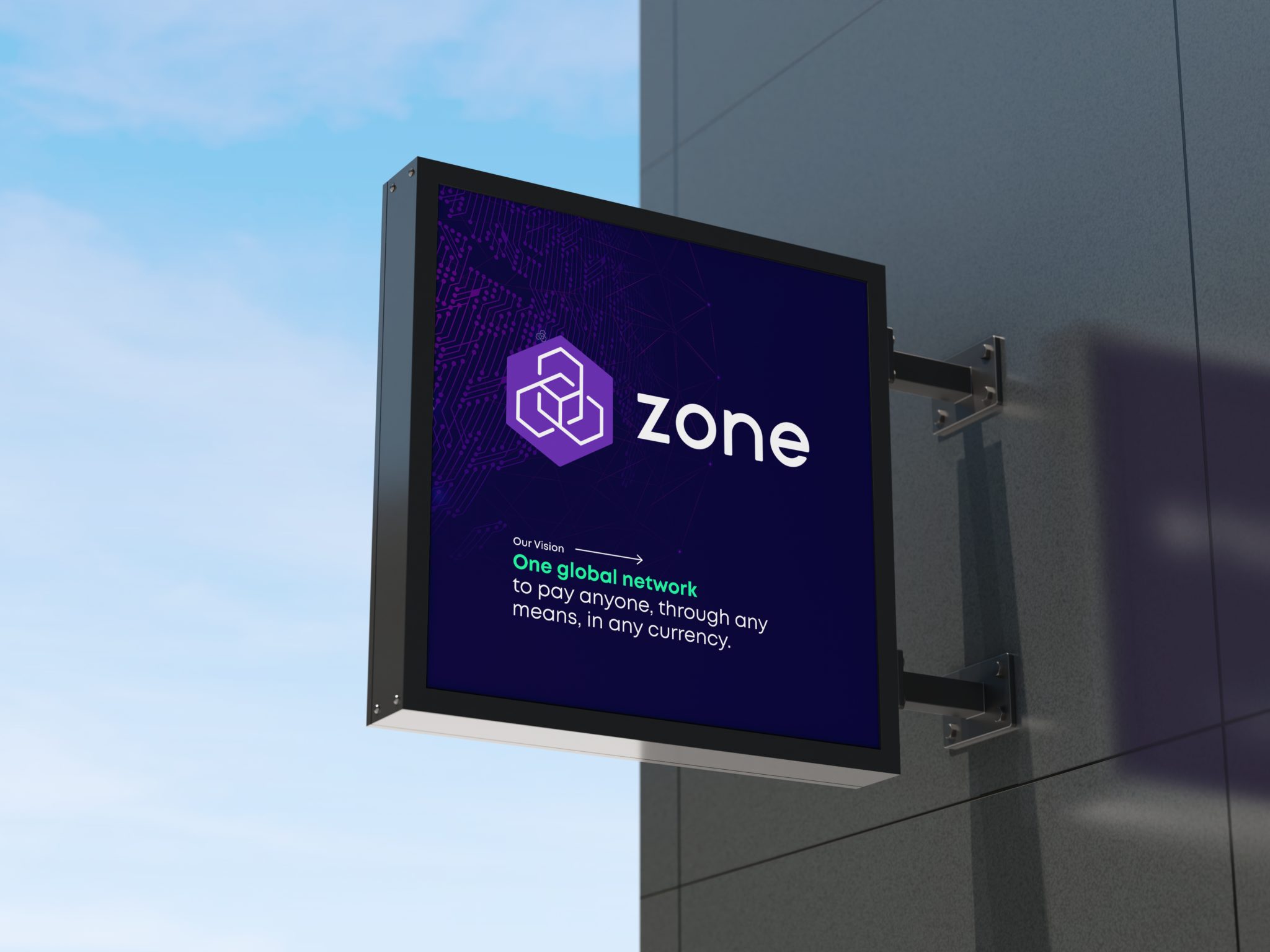
Zone (formerly Appzone), “Africa’s first regulated blockchain network for payments,” has announced an upgraded infrastructure. Known as Zone 2.0, the new infrastructure is designed and expected to revolutionise the digital payment landscape.
Founded in 2008 by Obi Emetarom, Emeka Emetarom and Wale Onawunmi, Appzone began operations by offering custom software development services to commercial banks. It would evolve into providing services in end-to-end automation of lending operations for banks and blockchain switching in 2020.
In 2022, the Nigerian fintech software provider rebranded to “Zone”, a regulated blockchain payment infrastructure company. The company reportedly has over 20 of the biggest commercial banks, Fintechs and OFIs in Africa already connected to its Layer-1blockchain network.


Related post:
Fintech software provider, Appzone rebrands to ‘Zone,’
And now, the new announcement, Zone 2.0 is branded as the future of payment which promises to be seamless, reliable and scalable, while offering universally interoperable transactions leveraging blockchain technology. Also, it includes some unique features for the financial services industry, such as: Real-time settlement, 100 per cent automatic dispute resolution, Direct fintech participation and Shortened implementation time for connecting institutions.
In a conversation with Technext, Obi Emetarom, CEO at Zone gives an in-depth analysis of Zone 2.0’s technology and its proposed impact on the financial services industry.
Overview of Zone 2.0
For short term impact, Zone 2.0 is going to be big on increasing transaction processing capacity significantly. This would be a 20x increase from Zone 1.0, according to the company’s CEO.
Apart from that critical enhancement, the updated infrastructure will be resilient in handling instability and downtimes, especially in the banking industry which continues to grow into a cashless environment.
“So there’s massive improvement on that side to complement the already significantly improved customer experience that that Zone has,” the CEO said.
Importantly, in Zone 1.0, Fintechs cannot connect directly on the network as they have to connect through banks. But in Zone 2.0, Fintechs and other financial institutions can connect directly to banks and to every other individual and organization.
“Anybody that is licensed can connect directly into the network and connect to every participant.” Obi stated.


Obi Emetarom also said that this second iteration of the infrastructure supports instant settlement so that banks and Fintechs can get value for their transactions immediately, instead of waiting for the next day like 1.0.
In the long term, Zone is positioned, in this new version, to support decentralised finance (DeFi) and regulated digital currencies. What this means is that with the new platform, unlike the old platform, third parties (not Zone) that are regulated can issue a token on the Zone platform.
Additionally, there will be, in the long term, support for third party developers to build smart contracts that support decentralised apps (DApps) or DeFi on Zone.
Benefits of Zone 2.0 to the local market
One of the benefits Zone 2.0 brings to the local market is the elimination of intermediaries, according to Obi Emetarom.
“Zone connects all the participants directly without an intermediary, so that you don’t have a central point of failure. The transparency enables instant automated reconciliation and refund to customers without them having to complain,” he explained.
Also, Obi says settlement is in real time on the platform.
“Everybody gets value for their transactions immediately and liquidity becomes unavailable for traders to restock and for businesses to continue smoothly.”
While answering questions on security and transparency in the quest to ensure real time settlements, Obi says unlike others, Zone is a permissioned network. This means that not anybody can connect to the network without authorisation, which is the first layer of security.
Read also:
The requirement of that authorisation is to be a regulated entity by the CBN or any other major regulatory body.
“The reason is because as a regulated entity, there’s some minimum security.”
Zone vision and how it aligns with blockchain
Obi Emetarom believes that blockchain is the future of financial services payments and other financial services, and Zone’s vision aligns closely with that.


” at Technext Coinference 2022: Speakers (L-R): Buki Ogunsakin, of BBO Solicitors, Obi Emetarom of AppZone and Gideon Orovwiroro of KoraPay
“Adoption that we see in traditional finance will combine with the power of the technology on blockchain to change the way financial services work and that will be based on different decentralised finance,” the CEO said.
According to him, “regulated blockchains” like Zone will form the foundation for this new era of finance. As one of its long term impacts, Zone would support third parties to issue digital assets on the platform.
That is the kind of future Zone will be facilitating, with the blockchain.
